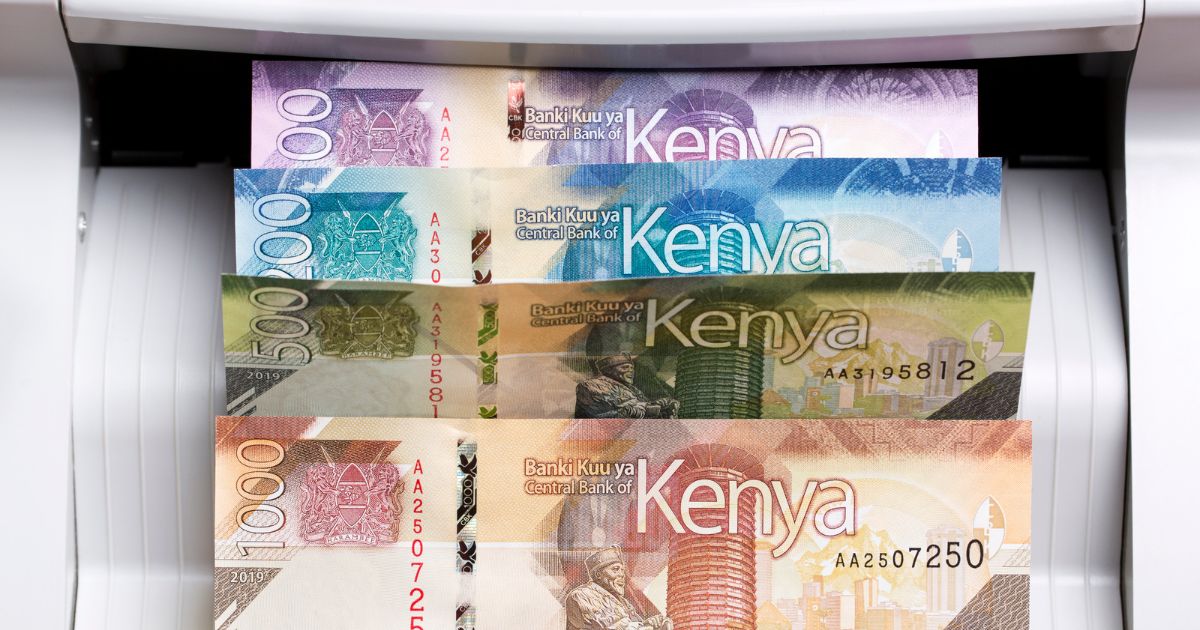- Money254 Money Weekly
- Posts
- 5 Signs You Are About to Fall Off Your Savings Challenge and How to Stop It
5 Signs You Are About to Fall Off Your Savings Challenge and How to Stop It
Sticking to a savings challenge, whether it’s No-Spend November, a 52-week challenge, or a personal monthly goal, always starts with excitement. But a few weeks in, life happens: unplanned expenses, social pressure, emotional spending, and “I’ll replace it next month” thinking.

Greetings, and welcome to the 47th edition of the Wallet Wellness Newsletter - your midweek source of practical financial tips to elevate your money management skills!
We hope you got a chance to read last week’s edition, where we discussed how to deal with social pressures and stick to your savings challenge. This week, we shift gears to 5 signs that show that you are about to fall off your savings challenge, and how to stop it.
As always, be sure to check out the Concept Corner below for a deep dive into the money concept of the week.
Let’s dive in!
Sponsored Content
Are you a school owner looking to expand, upgrade your facilities, or buy a school bus? Our partner, Jackfruit Finance, offers a financing solution designed exclusively for schools.
Access up to Ksh9 million in just 48 hours to grow your school. Whether it’s building new classrooms or acquiring essential assets, Jackfruit provides friendly terms and flexible repayments — not fixed monthly instalments.
Apply for the Jackfruit Project & Asset Loan today and take your school to the next level. Apply here
MONEY254 TIP OF THE WEEK
5 Signs You Are About to Fall Off Your Savings Challenge and How to Stop It
Sticking to a savings challenge, whether it’s No-Spend November, a 52-week challenge, or a personal monthly goal, always starts with excitement. But a few weeks in, life happens: unplanned expenses, social pressure, emotional spending, and “I’ll replace it next month” thinking.
Before you completely abandon your savings plan, here are the five early warning signs you're about to fall off and exactly how to stop it.
1. You Start Budgeting from Your Savings Account
You find yourself frequently opening your savings account (SACCO, MMF, or dedicated savings wallet) just to "check the balance" or calculate if you have enough to cover a non-essential expense.
The Trap: This psychological proximity to your savings treats them as available spending money, eroding the mental barrier you established. You start thinking, "I can just borrow Ksh2,000 and replace it later."
How to Stop It: Move your savings to an account that is inconvenient to access immediately—perhaps a fixed deposit or a Money Market Fund (MMF) that requires a three-day withdrawal notice.
2. You Justify “One-Time” Expenses Too Often
You begin rationalizing purchases by using phrases like: "It was a one-time discount," "I totally deserve this," or "It’s an investment, not an expense." This is emotional spending disguised as strategy.
The Trap: These small, frequent "exceptions" add up rapidly. One expensive nyama choma outing this week and a new pair of shoes next week can destroy your monthly budget by Week Two.
How to Stop It: The 48-Hour Rule: When you feel the urge to buy, stop immediately. Put the item (online or in the cart) and wait 48 hours. If the emotion fades and you can articulate why it is a true need, then consider buying it. Most of the time, the urge disappears.
3. You Stop Tracking Your Spending Daily
You started the month meticulously logging every matatu fare and sukuma wiki purchase, but now you’re just swiping your card or using M-Pesa without checking the confirmation message.
The Trap: Lack of tracking leads to financial amnesia. You lose awareness of where your money is going, making it impossible to adjust before you hit a crisis.
How to Stop It: Use the Daily Check-in: Dedicate five minutes every evening (e.g., while cooking dinner) to quickly review your M-Pesa transaction log for the day. If you see a questionable expense, you can course-correct immediately the next day.
You start saying "no" to all social invitations because you fear being pressured to spend, or you don't want to explain your frugality.
The Trap: Isolation leads to emotional burnout and an increased likelihood of spending impulsively to relieve stress later. It also causes social damage.
How to Stop It: Initiate the Frugal Event: Take control of the venue. Offer to host at your place, or suggest a free activity like a hike in Karura Forest or a long walk instead of meeting at a high-cost coffee shop.
5. You Have Lost Sight of the "Why"
Your initial goal—funding your child’s next semester of school fees, buying a plot of land in Kikuyu, or clearing your HELB loan—has become a distant, abstract concept.
The Trap: When the motivation is purely numbers, the short-term pain of saving always outweighs the long-term abstract reward.
How to Stop It: Visualize the Goal: Put a picture of your goal (the land title deed, the university prospectus, or the debt repayment notice) where you see it every day—perhaps as your phone lock screen or above your workstation.
Capital Growth
Capital growth is an approach that primarily focuses on increasing the value of your investments over time. Here, you want your investments to generate returns that exceed the inflation rate and grow your initial investment to achieve your big-ticket goals, such as buying a house, retirement, and building generational wealth. When your goal is capital growth, you will likely have to put your money in accounts and investments with higher potential returns. Read more.
Money Tips & Career Advice
MONEY254 #MONEYTOK
He Built a Ksh8M Dream Home, Then Went Back to Renting in 3 Months
Owning a home is a dream come true for many Kenyans. Many would therefore wonder why someone who owns a home in the city would opt to live in a rented apartment.
Sam's story offers a timely reflection on how to balance society's view of success and practical decisions that affect our mental and financial well-being today. Listen to his full story.
@money254hq Owning a home is a dream come true for many Kenyans. Many would therefore wonder why someone who owns a home in the city would opt to live... See more
That's it for this edition of Wallet Wellness. We hope these financial tips have added some energy to your hustle. Stay tuned for more practical insights in our next edition of "Wallet Wellness" next week, and watch out for Money Weekly in your inbox this Friday.
Also, don’t forget to download the Money254 App on the Google Play Store, and remember that we can help you compare over 300 loans, savings accounts, current accounts, and more if you’re thinking about your next product.
Cheers to your wallet's well-being!
Money254 editorial team.
FEEDBACK REQUEST ❤️
Poll: What do you think of this midweek Wallet Wellness email?We'd love to have your feedback on this Wallet Wellness newsletter. Let us know how you feel about it below! You will be able to give us direct feedback on how we can make it back after voting 🙏 |
Thank you to all of you who gave feedback on last weeks newsletter!
❤️ Share with a friend
Thanks for reading. If you liked this week’s Wallet Wellness email, we’d love for you to share it with a friend.
If this email was forwarded to you, you can subscribe here.








%20(1).jpg)